Debates are raging on several of my lists about writing in 1st versus 3rd person. I'm amazed at how vehemently opposed some people are to 1st person. I suppose they don't read many literary works.
For those of you who missed the lecture:
1st person is I.
First paragraph of Huckleberry Finn:
YOU don't know about me without you have read a book by the name of The Adventures of Tom Sawyer; but that ain't no matter. That book was made by Mr. Mark Twain, and he told the truth, mainly. There was things which he stretched, but mainly he told the truth. That is nothing. I never seen anybody but lied one time or another, without it was Aunt Polly, or the widow, or maybe Mary. Aunt Polly -- Tom's Aunt Polly, she is -- and Mary, and the Widow Douglas is all told about in that book, which is mostly a true book, with some stretchers, as I said before.
3rd person is fly on the wall.
First two paragraphs of Anna Karenina
Happy families are all alike; every unhappy family is unhappy in its own way.
Everything was in confusion in the Oblonskys' house. The wife had discovered that the husband was carrying on an intrigue with a French girl, who had been a governess in their family, and she had announced to her husband that she could not go on living in the same house with him. This position of affairs had now lasted three days, and not only the husband and wife themselves, but all the members of their family and household, were painfully conscious of it. Every person in the house felt that there was no sense in their living together, and that the stray people brought together by chance in any inn had more in common with one another than they, the members of the family and household of the Oblonskys . The wife did not leave her own room, the husband had not been at home for three days. The children ran wild all over the house; the English governess quarreled with the housekeeper, and wrote to a friend asking her to look out for a new situation for her; the man-cook had walked of the day before just at dinner-time; the kitchen-maid, and the coachman had given warning.
Thereare variations of 1st (ancillary, protagonist) and 3rd (Limited,
omniscient, objective), but we'll keep it simple. I won't even mention 2nd. Okay, I will.
2nd is You.
First sentences of Bright Lights, Big City
You are not the kind of guy who would be at a place like this at this time of the morning. But here you are, and you cannot say that the terrain is entirely unfamiliar, although the details are fuzzy. You are at a nightclub talking to a girl with a shaved head...
Second is really hard to write. I find it hard to read, although it doesn't throw me when people speak in 2nd. (Listen. Many people do. Speech grammar is much more fluid and forgiving than written grammar. People switch between past and present tense all the time in speech, and you have no problem following them, but if you read it in a book, it would drive you nuts. The same holds true for Person.)
Voice is one of my least favorite debates. To be irrational about it, the discussion dredges up a bad writing memory for me. When I was in high school, several of my
teachers banded together and paid my way to a writer's conference because they believed that much in my talent. The first session I went to was about voice. After a rather lofty conversation in which the terms were never explained, the facilitator spun around and jabbed his finger at my face. "I hope you think about how the voice will affect your entire work before you sit down to write." This roomful of adults,
many of them professional writers, stared, so I decided it was a question. I shrugged and said, "I just let the story come out naturally, in the same voice it came to me." "Wrong!" he bellowed, jabbing his finger at my face some more. "Wrong. All WRONG. You don't know what you're doing." So I quit writing. That's right. I let a pompous college professor (and probably failed writer) destroy my ability to write for years. (There were plenty of other pressures
on me to give it up, but his words were the tipping point.) Some way to thank those teachers for spending their hard-earned money on me, wasn't it? But that experience left me paralysed. Any time a story would come to me, I'd want to write it down, but then I remembered that I was supposed to debate voice and have a solid, defensible reason for that choice before I wrote word one.
So now when people talk about voice, I often picture that professor screeching about it, and I simply can't join the conversation. I can read it, I can listen, but I won't, or can't, defend my position.
Now that I've overcome that little mental block (and a few bigger ones)I still don't think too much about 1st or 3rd. I let the story roll out the way it comes to me. I have rewritten a story and changed it from 1st to 3rd, but I've never been happy with the result. I suppose there are writers who sit down and think about which voice to use and how it affects the story before they write. That's a good thing to be aware
of. 1st is intimate. 3rd is more objective. But despite what Professor Jabby-Fingers
said, I don't think it has to be a momentous event. The decision can be made as the story is rolling out and it naturally fits into a certain voice.
As a reader, I'd never let the voice the author chose sway my opinion of the story. I'd never, as one person said, "Chuck that book against a wall and go get something that's well written." (I suppose she thinks Huckleberry Finn and Moby Dick aren't well written.) Every voice exists for a reason. There's a right one for a story. I can't see making a blanket decision that all 1st Person sucks and refusing to ever read a story written in that voice. Then again, I have to consider the source of that statement. *bites tongue*
Thursday, January 24, 2008
Subscribe to:
Post Comments (Atom)










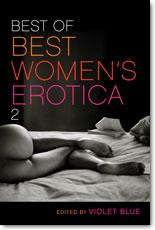

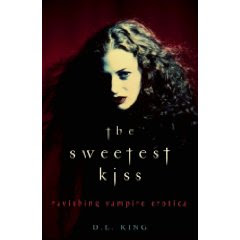


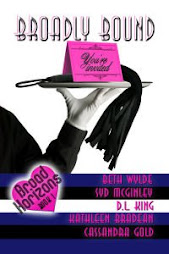.jpg)
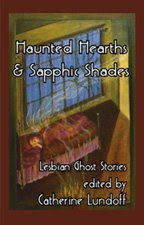

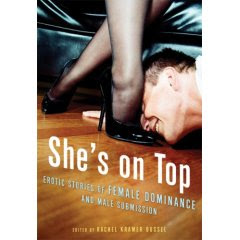








1 comment:
yeah, isn't it weird how strong people's opinions are on what one is supposed to do. i hate that. like you i let the story and the characters determine voice. sometimes if a story isn't working in one type of narrative, i'll choose another. no biggie.
Post a Comment